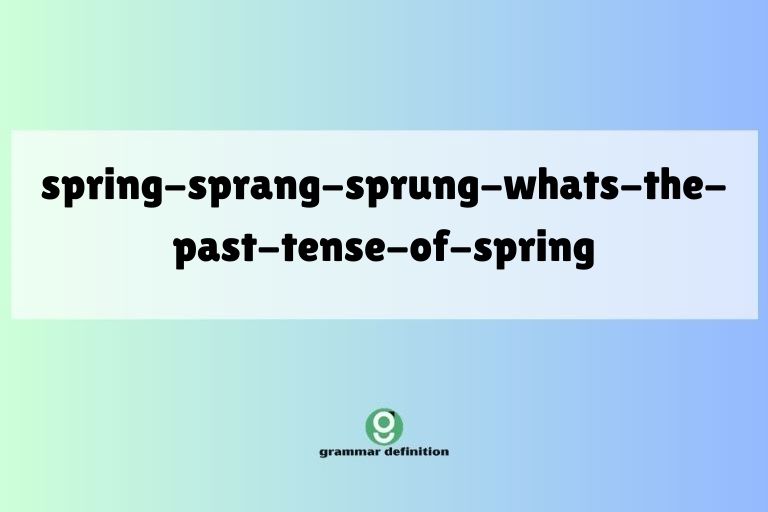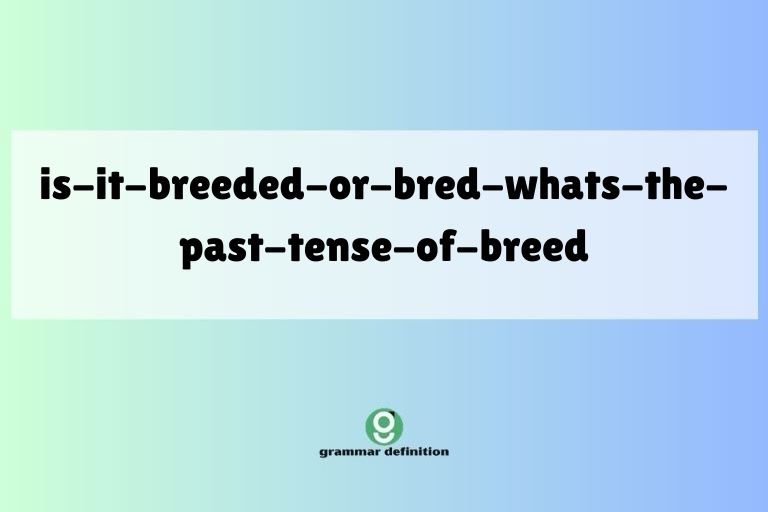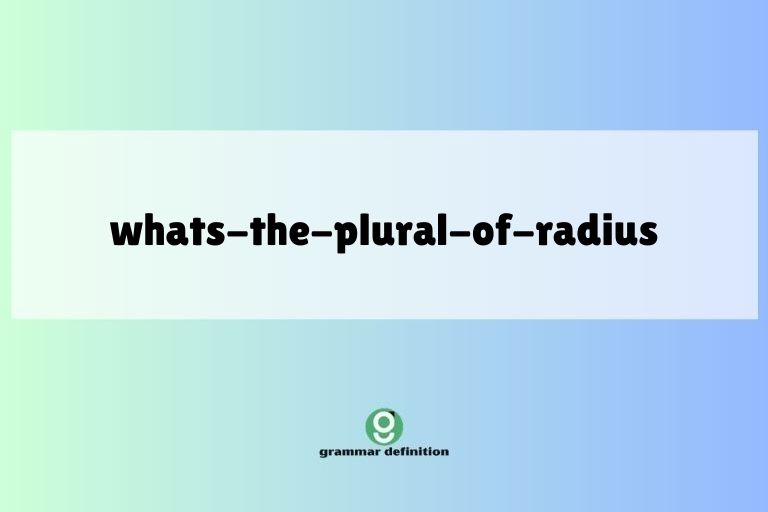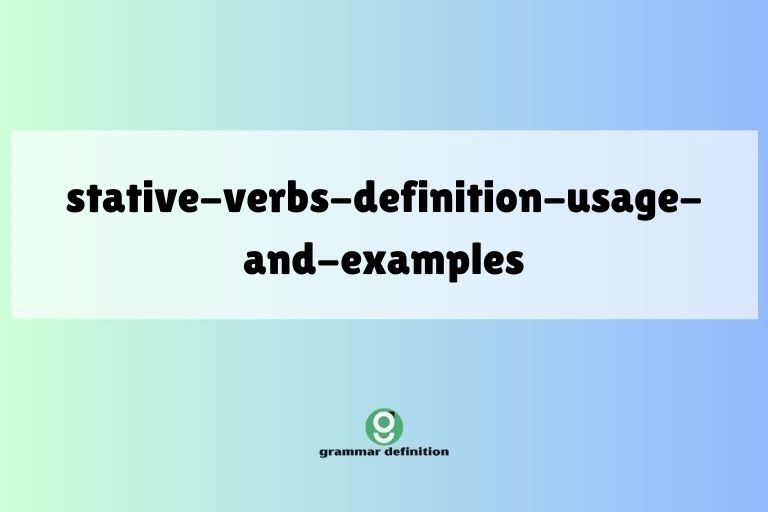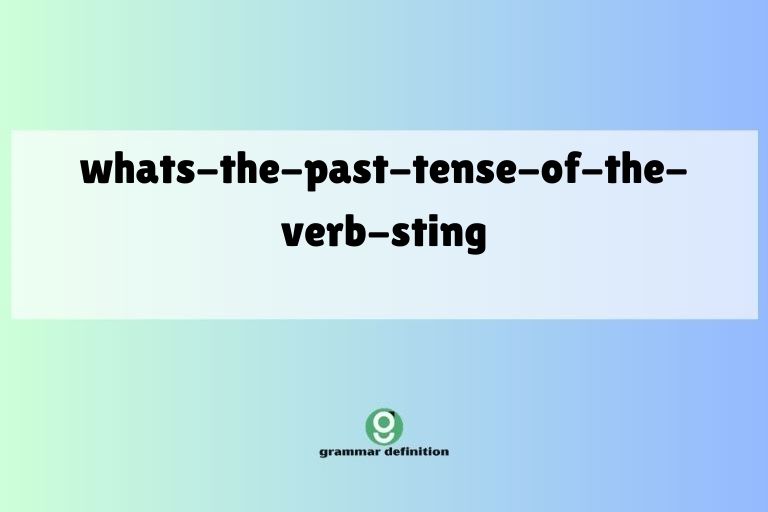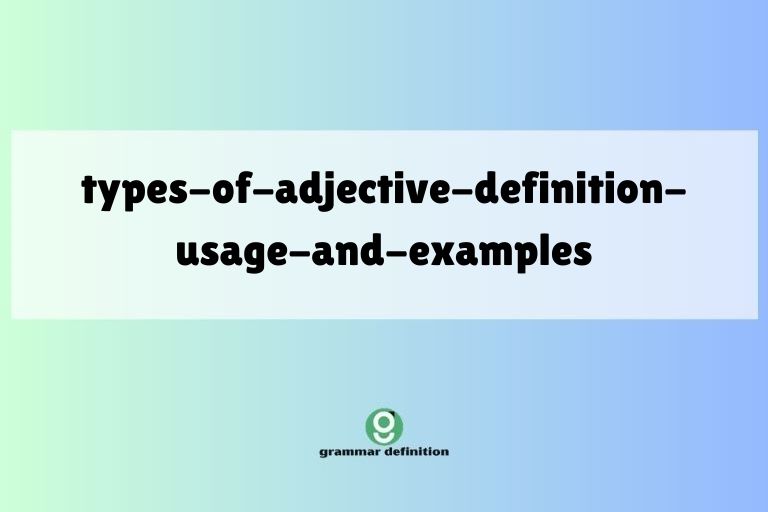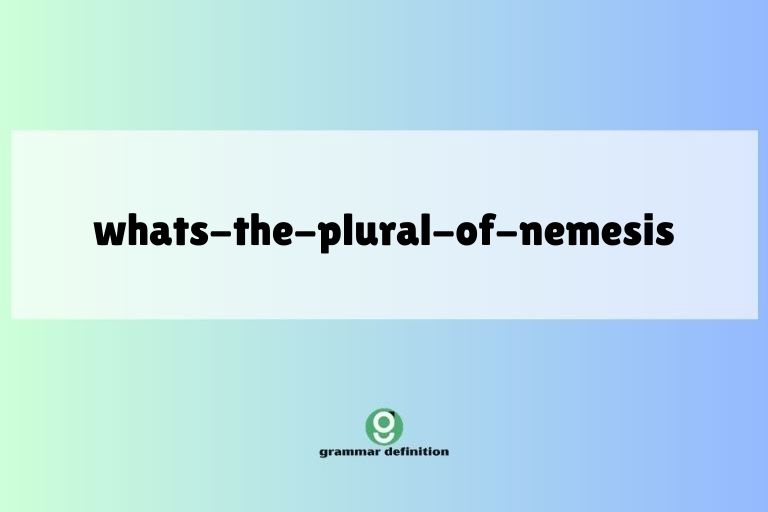Spring Sprang Sprung: Mastering the Past Tense of Spring
Understanding irregular verbs is crucial for mastering English grammar, and the verb “spring” is a prime example. Knowing when to use “spring,” “sprang,” or “sprung” can be tricky, but with clear explanations and plenty of examples, you can confidently navigate its past tense forms. This article provides a comprehensive guide to the verb “spring,” covering … Read more

